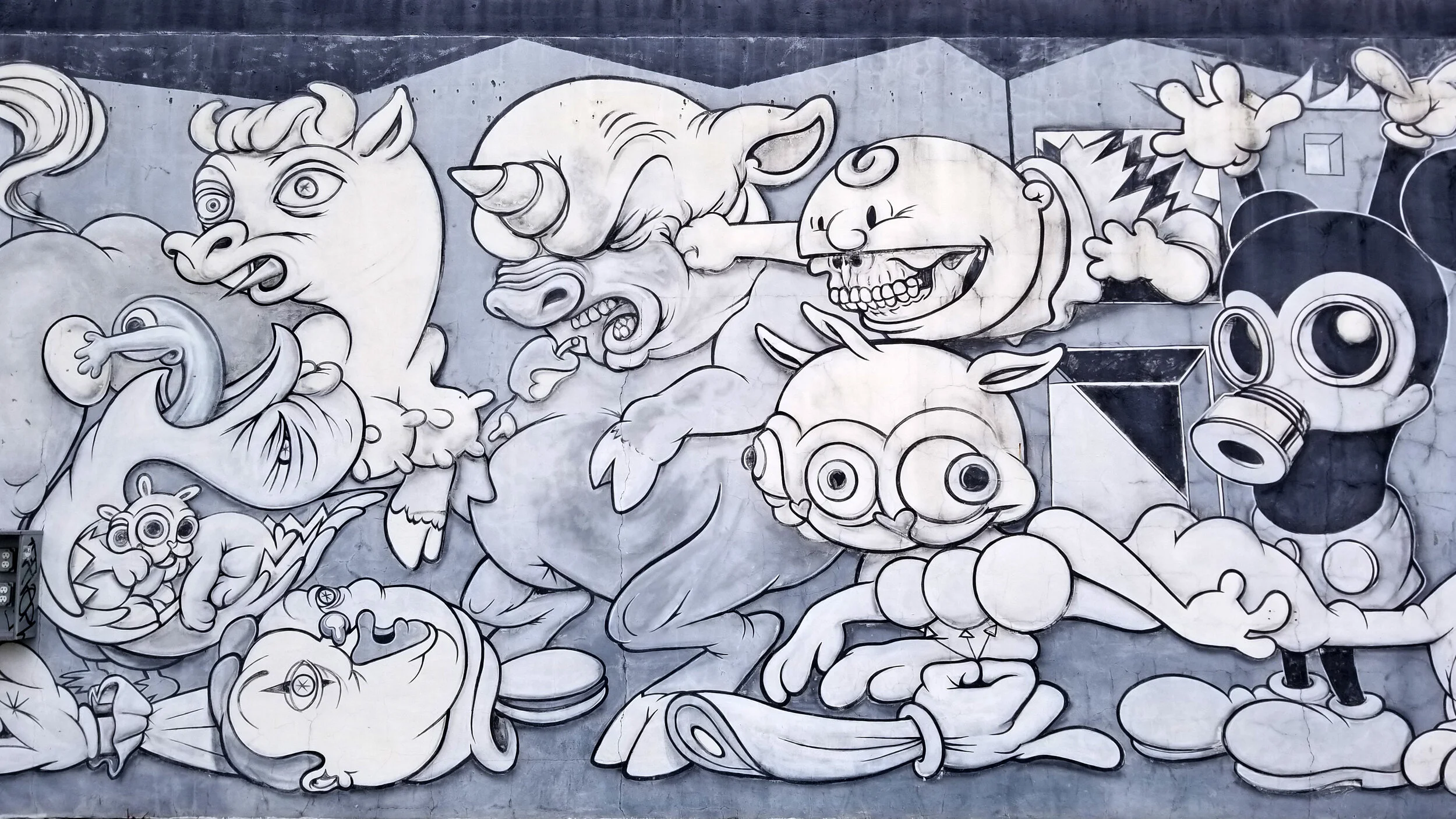Ep039: 3 Myth of Nightmare
RESOURCES
Krakow, B., & Zadra, A. (2006). Clinical management of chronic nightmares: imagery rehearsal therapy. Behavioral sleep medicine, 4(1), 45-70.
Nappi, C. M., Drummond, S. P., & Hall, J. M. (2012). Treating nightmares and insomnia in posttraumatic stress disorder: a review of current evidence. Neuropharmacology, 62(2), 576-585.
“Imagery rehearsal therapy for the treatment of nightmares“ treatment manual, developed by Nappi & Drummond, Ph. D.
Thank You for Listening!
Newsletter and Download Free Sleep Guidence E-Book:
CBT-I Courses:
Podcast Links:
Apple Podcast: https://podcasts.apple.com/us/podcast/deep-into-sleep/id1475295840
Google Podcast: https://podcasts.google.com/search/deepintosleep
Spotify: https://open.spotify.com/show/2Vxyyj9Cswuk91OYztzcMS
iHeartRadio: https://www.iheart.com/podcast/269-deep-into-sleep-47827108/
Support our Podcast: https://www.buymeacoffee.com/dryishan
Leave us a Rating: https://podcasts.apple.com/us/podcast/deep-into-sleep/id1475295840
Transcript
- 0:00
Have you ever had a nightmare? Have you ever had several nightmares in a row within a short period of time? Why we would have nightmares, how to understand it and what to do about it. Today I won't discuss the pros and cons of nightmare, some knowledge behind it. And the three myths about nightmare. Welcome to deep into sleep. I'm Asian
- 0:32
possibly no one enjoys their nightmare. A scary it's uncomfortable. However, do you know net Mayor actually serves a function for us. It actually can help us relieve the daytime his appearance and really help us remember some important details that is meaningful to us. survival. It can help us to process our emotions, to increase our survival functions to motivate us somehow change our behaviors or our lifestyles in order to avoid future harm. So it's really helpful mechanism for our survival and exist for a reason. But when the nightmare persist, when it becomes a chronic problem, then is not helpful at all. And it actually can harm our sleep quality quite a lot. Think about this, when we keep on having some kind of nightmare and we are losing control of it. What we would do, every time we have nightmare every time we were waking up by it in the middle of night, our heart postulates pounding We are possibly sweating, it's uncomfortable. And of course, we don't want to go back to the dream. And before sleep, we may delay the time to go to bed. We try to make ourselves more exhausted in order to not having the nightmares to not sleep. Hopefully, we won't experience it anymore. So it will cause us to sleep deprived ourselves, or we end up with really poor sleep quality, then a lot of people may ask, well, nightmare often is because our real life stress or some bad things happen to us. So if we want to deal with the nightmare if we want to really avoid it from happening, we have to go ahead handle the stress handle those traumatic events happen. To us, there's nothing we can do about nightmare itself. This is actually not true. And this is the first myth I want to talk about today. Nightmare actually can become a learned behavior, like a habit. Think about new banking. When we are anxious sometime some people or some cases may bite their nail, and it's, they just keep on doing it so often, whenever something triggers them, they will bite their nail and eventually when they are thinking about things they will habitually to bite their nail, even though there are no external triggers. That is a habit. It's a habit form from some stress. Nightmare is the same age can become adaptive function for his All our emotions need to be processed during the dream a nightmare is a way of doing it. But keep on doing it keep on doing it. And eventually we adapt to it. And we may even develop identity that I am someone have like nightmare. I am someone suffer from nightmare. And we start holding that identity. So forum that we actually gave the nightmare power. It's the nightmare become a plant. We are watering it we're giving it nutrition by paying attention to it by giving it identity by link to who I am to the nightmare. Then nightmare start taking on a life of their own. That's why there are actually really good methods to treat nightmares. itself without treating stress, trauma or other things. And the method called IRT imagery rehearsal therapy, and it's evidence based therapy for nightmare. I will not go into the details right now. But if you or someone suffer from chronic nightmare, you can consider this type of treatment. Second means Can I just self medicate myself? If I have nightmare, I don't need to go to see any professionals. I can just drink myself to sleep. And that can help me have less nightmare and I will be fine. It is true. Exactly the opposite. Even when we don't have nightmare, alcohol actually can harm our sleep quality. When we have a nightmare. It's even worse. Why alcohol is Actually can increase our stage of REM sleep. That's the rapid eye movement stage. That's the stage when we dream and that's the time when nightmare happened. So drinking alcohol can increase the length of this period means it gave us more opportunity to dream. And even worse, alcohol can help us remember our dreams more clearly. So it does not only increase give us more opportunity to have nightmares. It also gave us more memories about the nightmares when we wake up. And all this of course can harm our sleep quality. So if you have nightmare Be careful about this kind of self medicate behaviors. The third myth nightmare cannot be changed. Once something bad happened to me, or whenever I have a nightmare, I will possibly keep on having the nightmare. There's not much I can do to change it. Actually, nightmare can change, just like any other form of dreams. The content, intensity, and frequency of nightmares can all change over time. And that's also why there can be treatment out to really target nightmare. For example, when I was a child, I used to have this nightmare consistently that someone is chasing me. I'm running, running, running really hard, and really scared in my dream. I never know who is chasing me. One time of thinking, Hey, this is awful. Why? once a while I would have such dream. So maybe I can do something about it. So one day in my dream, I decide, okay, I don't want to keep on running. I'm too tired. Let me turn back to see who is chasing me whether I can fight with this person. Somehow I don't know that day I just remembered possibly because daytime, I keep thinking about it. And then the night time I actually was able to stop, turn back the rider to fight. And guess what? No one's chasing me. No one's behind me. I was fine. I was safe. So after that, that kind of nightmare did not happen as often anymore. And every time it happened, I was not as stressed out by it anymore. So what if you have occasional nightmares? What can you do? There are two simple strategies you can consider one, cut off or limit the input of negative information during the daytime. The more negative news information you're experiencing, you're inputting your brain have more information to work on to create a negative storyline, a negative picture in your brain, and then at night, they're more likely to show up in your dreams in scary way. Second, practice more positive, pleasant imagery in your brain during the daytime, for example, one minute, five minute practice every day about something pleasant to really picture it in your brain to guide yourself to really come up with this picture with this kind of storyline, and then it's likely to balance your dream at night for you. However, if you have chronic long term nightmare, if you had some traumatic events happened to you before, that is really difficult for you. Please go ahead To seek professional help, either to target your nightmare using some method like IRT, or to solve process other related symptoms or challenges around it, they can all be helpful. treating your nightmare itself can help with our recovery of other mood disorders, including PTSD, post traumatic stress disorder. I will cite a paper that I read recently detailed is planned this IRT method and some of this myth of nightmares in it. I will put it on the show note at www.deepintosleep.co/episode/039. If you have any thoughts about today's episode, please feel free to leave me a message and let me know how you think. Thank you very much for listening, and I will see you next week.
- 11:07
Sleep is an individual thing. We all sleep differently, and there are so much we can do to improve sleep quality. Keep hope and carry on. This podcast is for general informational purpose only, and does not include the practice of medicine or other health professional services. The usage of the information we share is that the listeners own risk and our content does not intend to be a substitute for any medical and professional services, diagnosis and treatment. please seek professional health services as needed.


